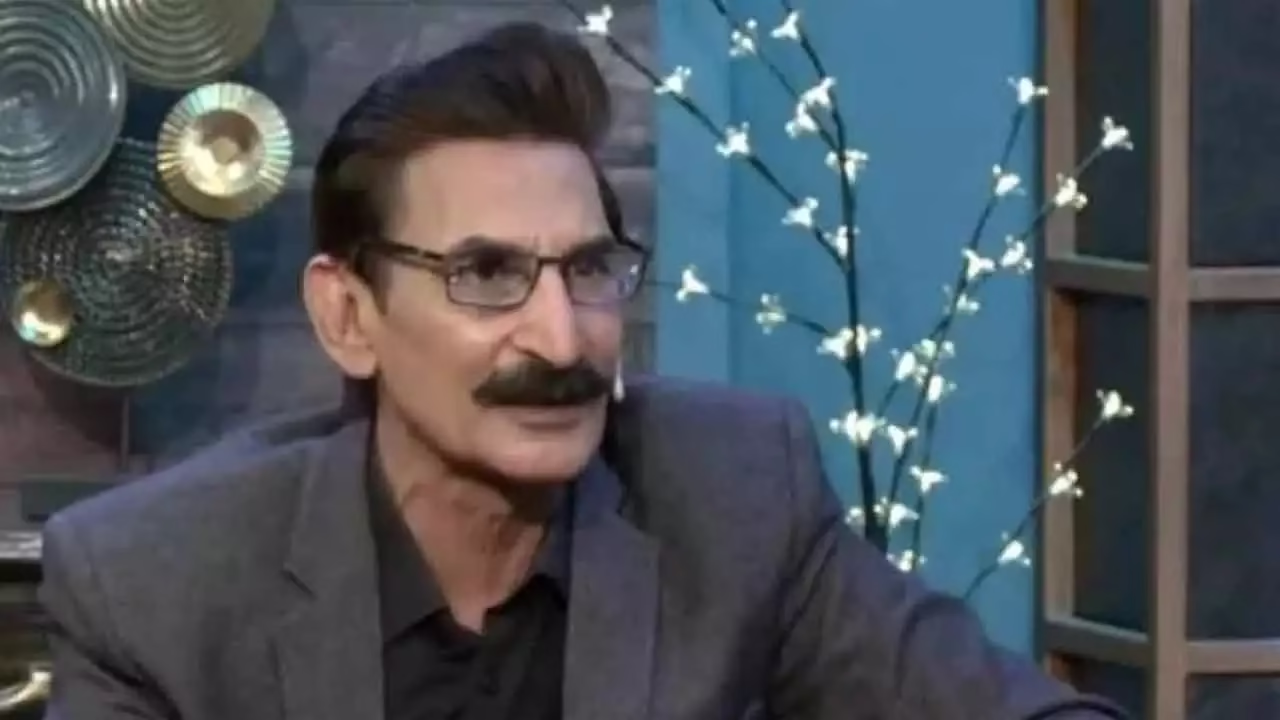In a fiery and emotionally charged appearance on a podcast, a Pakistani actor delivered a bold message to India, responding to recent regional tensions with pointed words and a passionate defense of Pakistan’s military strength and national pride. The actor’s comments quickly gained traction on social media, drawing both praise and criticism from viewers across borders.
Addressing perceived threats from India, the actor declared, If you come by air, you will be blown up. If you come by sea, you will be drowned. And if you come by land, you will be razed to the ground. He emphasized that the Pakistan Army has already demonstrated this capability on several occasions, underscoring the nation’s military preparedness and resolve in the face of any aggression.
The statement was made in the context of growing tensions and frequent aggressive rhetoric coming from Indian political quarters. However, the actor made it clear that his criticism wasn’t directed at the Indian public as a whole, but specifically at those who threaten Pakistan’s sovereignty or issue provocative statements, especially about cutting off Pakistan’s water supply — an act he likened to historical tyranny.
Message to Indian Punjabis and Cultural Identity
What stirred controversy the most was the actor’s comment regarding Punjab in India, saying, I don’t even consider Punjab a part of India. This remark, while deeply symbolic, stirred emotional reactions, particularly among Indian Punjabis and netizens who viewed it as a challenge to India’s territorial integrity.
Clarifying his stance, the actor said that his intention was not to insult people but to express solidarity with Punjabi culture and history, which transcends modern political borders. He explained that his reference to Punjab stemmed from a cultural and spiritual connection, not a geopolitical one.
He further added that many of his Indian Punjabi friends were upset by the remarks, but he believes that their anger is misplaced. We share a heritage, a language, and centuries of tradition, he said, urging Indian Punjabis to see beyond state lines and recognize the shared roots and values they have with people across the border.
We Are the Followers of Hussainiyat
The actor then turned to religious and moral philosophy, referencing Islamic history to frame his message. He described Pakistani Muslims as followers of Hussainiyat — the school of thought inspired by the sacrifice of Imam Hussain (R.A.), symbolizing resistance against oppression and tyranny.
He contrasted this with what he described as Yazidi behavior aimed at those who threaten to cut off Pakistan’s water, likening such threats to the oppressive tactics used by Yazid in the battle of Karbala. This comparison was a powerful rhetorical tool that struck a chord with many viewers familiar with Islamic history and the values of sacrifice and justice that it upholds.
Remarks on Indian Actors and Cross-Border Work
The actor, who has previously worked with Indian actors in film and television collaborations, revealed that despite the camaraderie shared on set, Indian actors often act under compulsion due to the political climate. He described them as “constrained”, noting that many are reluctant to show public support or friendliness towards Pakistani colleagues for fear of backlash from their domestic audience or government.
I’ve worked with many Indian artists, and they’re good people, but they’re forced to act against us publicly,he stated. According to him, the pressures of nationalism, media narratives, and political propaganda limit the ability of Indian artists to engage openly with their Pakistani counterparts.
A Call for Real Dialogue
Despite his strong words, the actor’s message wasn’t entirely one of division. Underneath the rhetoric was a plea for understanding, cultural unity, and honest dialogue, especially among those who share religious, linguistic, and ethnic roots across borders.
His statements, while controversial, were aimed at drawing attention to the hypocrisy and hostility in bilateral relations, and the way art, culture, and even humanitarian ties have suffered in the crossfire.
As the clip continues to go viral, it has ignited debates in both Pakistan and India about the role of artists in geopolitics, the fine line between patriotism and provocation, and whether public figures should engage in such discourse. Regardless of where one stands, the actor’s podcast appearance has certainly reignited conversations around nationalism, cultural identity, and the enduring impact of unresolved regional conflicts.



